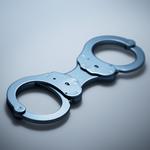Stop Huntingdon Animal Cruelty (SHAC)
A major campaign was launched in 1999 to close down Huntingdon Life Sciences (HLS), Europe’s largest preclinical contract research organisation based in Huntingdon, in the UK. Stop Huntingdon Animal Cruelty (SHAC) was set up by three British animal rights extremists: Greg Avery, his wife Natasha Avery, and his first wife Heather Nicholson. HLS continues to operate as a successful company so the SHAC campaign that has been running for over 10 years has failed.
Since its inception, SHAC has claimed to be a lawful and legitimate protest group, but between 1999 and 2007 its supporters subjected employees, suppliers and associates of HLS to a sustained campaign of intimidation and blackmail. Besides hostile demonstrations and continual harassment of HLS staff and their families, direct actions included vandalism, planting fake and real explosive devices, death threats and assault. Cars were set on fire, windows were smashed, and aerosol sirens were set to stay on at full volume in the middle of the night. One of the most serious incidents was an attack in 2001 on HLS managing director Brian Cass, who was severely beaten outside his home by three masked extremists with axe handles. Around a month earlier, the company's marketing director, Andrew Gay, was attacked with a chemical spray to his eyes and beaten.
SHAC became an international movement supported by affiliated campaigners and extremist groups in Europe and the US that threaten companies alleged to be connected to HLS. HLS is now a private company but was previously a publicly traded. In December 2000 and March 2001 HLS was dropped from stock exchanges in both London and New York after spooked shareholders sold large stakes and wiped out its equity value. Over the years SHAC claims that nearly 300 companies have terminated their business contracts with HLS. In 2003, HLS obtained a permanent injunction against SHAC that dramatically reduced illegal activities against the company and its employees.
US and UK arrests
 In 2006, six US-based extremists were found guilty of conspiracy to violate the Animal Enterprise Protection Act and were jailed, having been accused of using the internet to stalk employees and business associates of HLS, and to incite violence against them. The group was known as the ‘SHAC 7’, as seven extremists were originally charged.
In 2006, six US-based extremists were found guilty of conspiracy to violate the Animal Enterprise Protection Act and were jailed, having been accused of using the internet to stalk employees and business associates of HLS, and to incite violence against them. The group was known as the ‘SHAC 7’, as seven extremists were originally charged.
A pan-European police operation codenamed Operation Achilles was mounted in 2007 against SHAC, involving 700 officers in the UK, Belgium and the Netherlands. A total of 32 arrests were made, and seven UK SHAC extremists – including the three founders – were convicted of conspiracy to blackmail and sentenced to a total of 50 years in prison. This group became known as the 'UK SHAC 7'.
Evidence during the trials proved an absolute connection between Stop Huntingdon Animal Cruelty and illegal activities including blackmail and coercion.
Although HLS has not been directly targeted by SHAC now for many years, a low level legal campaign continues to take place against a small number of the company’s alleged business partners.
SHAC in Europe
Despite the imprisonment of much of its leadership in the UK and US, SHAC’s global campaign has continued, with a particularly sharp increase in very targeted activity in mainland Europe in 2008 and 2009. So-called ‘home visits’, acts of vandalism and arson attacks affected employees at a number of companies with alleged ties to HLS.
In France, a series of direct actions were carried out against managers at the pharmaceutical firm Pfizer, as well as senior executives at NYSE Euronext – a multinational that manages the exchange on which HLS shares were listed. Managers at the British bank Barclays in London were also targeted.
An intense campaign began in 2008 against the Swiss-based research pharmaceutical company Novartis AG for alleged links to HLS, despite the business relationship between the two firms having ended years before. Extremists attacked the homes of 11 employees in Switzerland and Germany, vandalising property and vehicles. Incendiary devices were placed under the vehicle of a member of the board of directors, and in May 2009 a Novartis Sports Club in France was destroyed in an arson attack. The focus then turned to Daniel Vasella, then Chairman and CEO of Novartis. Extremists in Switzerland vandalised a chapel in Dr Vasella’s home village, and stole his mother’s ashes from a cemetery. The grave of his sister was desecrated with graffiti. Two crosses were planted in the ground bearing the names of him and his wife. The following month, his holiday home in Austria was burned to the ground. Responsibility for the campaign against Novartis was claimed by a group calling itself the Militant Forces Against HLS (MFAH).
